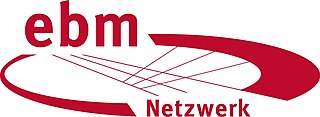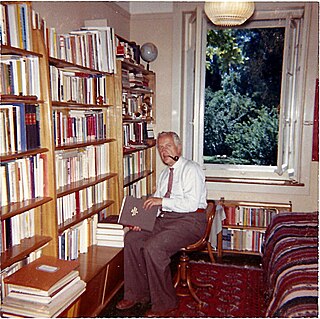The Learning Resource Server Medicine (LRSMed) is a free-to-access catalog of electronic learning and teaching software modules for education in medicine and dentistry available in English and German.
The Learning Resource Server Medicine (LRSMed) is a free-to-access catalog of electronic learning and teaching software modules for education in medicine and dentistry available in English and German.
The LRSMed was developed at the Institut für Medizinische Informatik, Biometrie und Epidemiologie (IMIBE) of the University Duisburg-Essen, Germany, within the joint research project "Vision 2003", [1] funded by the German Ministry for Education and Research. [2]
The LRSMed included electronic learning and teaching software modules for education in medicine and dentistry, which were deployed on the World Wide Web free of charge. [3] [4] The learning resources were described with a quasi-standard of metadata, the IMS Learning Resource Meta-data Information Model. [5] Users could search for entries using several parameters as the medical field, type of learning resource and language. [6]
The LRSMed was maintained at the Institut für Medizinische Informationsverarbeitung, Biometrie und Epidemiologie (IBE) of the Ludwig-Maximilians-Universität München, Germany (September 2013). As of 22 October 2013 [update] , 1705 learning resources were registered. The LRSMed was evaluated or used in several independent studies. [7] [8] [9] The LRSMed was deactivated in summer 2023.

Health informatics is the study and implementation of computer structures and algorithms to improve communication, understanding, and management of medical information. It can be view as branch of engineering and applied science.

Renato Marcos Endrizzi Sabbatini is a retired professor at the Department of Biomedical Engineering and at the State University of Campinas Institute of Biology. He received a B.Sc. in Biomedical Sciences from Medical School of the University of São Paulo and a doctorate in behavioral neuroscience in 1977, followed by postdoctoral work at the Max Planck Institute of Psychiatry's Primate Behavior Department. He founded the Center for Biomedical Informatics, and helped create the Brazilian Society for Health Informatics.

Baron Carl von Rokitansky was an Austrian physician, pathologist, humanist philosopher and liberal politician, founder of the Viennese School of Medicine of the 19th century. Founder of science-based diagnostics.
The Medical University of Vienna is a public university located in Vienna, Austria. It is the direct successor to the faculty of medicine at the University of Vienna, founded in 1365 by Rudolf IV, Duke of Austria. As one of the oldest medical schools in the world, it is the oldest in the German-speaking countries, and was the second medical faculty in the Holy Roman Empire, after the Charles University of Prague.
Hans Renschler, born in Stuttgart, Germany, was a scientist in the field of internal medicine and medical didactics. He was also the founder and director of the Institut für Didaktik der Medizin at the University of Bonn.

The German Network for Evidence based Medicine is a scientific nonprofit association of individuals and institutions promoting the quality of patient care and disease prevention by applying the principles of evidence-based healthcare (EbHC) - in special dentistry (EbD), medicine (EbM), nursing (EbN), pharmacy, physiotherapy - in the countries of German language.

Hans Martin Sutermeister was a Swiss physician and medical writer, politician, and activist against miscarriages of justice.
Computers and software have been used in dental medicine since the 1960s. Since then, computers and information technology have spread progressively in dental practice. According to one study, in 2000, 85.1% of all dentists in the United States were using computers.

Dominik Gross is a German bioethicist and historian of medicine. He is Professor and Director of the Institute of History, Theory and Ethics in Medicine at the RWTH Aachen University, Germany.

Johann Ludwig Choulant was a German physician from the Kingdom of Saxony who was a professor of Medicine at Dresden medical historian and contributed to the study of the history of medicine. He was the father of architect Ludwig Theodor Choulant (1827–1900). He trained initially in pharmacy before shifting to medicine. A student of classical languages, he examined old works on medicine and produced an influential history of medical illustration which was translated into English by Mortimer Frank and others in 1920.
Richard Crevenna is an Austrian medical specialist, Head of the Department of Physical Medicine, Rehabilitation and Occupational Medicine, Professor for physical medicine and a medical specialist for general rehabilitation with the special subject geriatrics, Pain Medicine, Geriatrics, and Occupational Medicne at the Medical University of Vienna (MUW). He is known for his basic work on cancer rehabilitation, interdisciplinary pain medicine and biofeedback.
Events in the year 2003 in Germany.
Virchows Archiv: European Journal of Pathology is a monthly peer-reviewed medical journal of all aspects of pathology, especially human pathology. It is published by Springer Science+Business Media and an official publication of the European Society of Pathology. It was established in 1847 by Rudolf Virchow and his friend Benno Reinhardt as the Archiv für pathologische Anatomie und Physiologie und für klinische Medicin. After Virchow's death, it was renamed after him to Virchows Archiv für pathologische Anatomie und Physiologie und für klinische Medizin. The European Society of Pathology adopted it as its official journal in 1999, so that its current name became Virchows Archiv: European Journal of Pathology.
Fuat Shamoun Oduncu is a German hematologist, oncologist and biomedical ethicist. He is professor for medicine at the Ludwig Maximilian University of Munich (LMU) and known for his work in the fields of oncology, palliative care, medical ethics and health economics.
Leopold Lichtwitz was a German-American internist.
The German Association for Medical Education is a non-profit organization to promote interdisciplinary advancement of medical education in German speaking countries. GMA is a member of the Association of the Scientific Medical Societies in Germany and the Association for Medical Education in Europe (AMEE). It was founded on April 22, 1978.

Gottlieb Friedrich Adolf Olpp was a German missionary and tropical medicine doctor, accredited with spreading Traditional Chinese Medicine and aiding the development of sinology in Germany and the West in early 20th century. As a medical missionary from the Rhenish Missionary Society from 1898 to 1907 in Dongguan, Guangdong Province of China, he conducted extensive research on local diseases and healing practices, such as Traditional Chinese Medicine (TCM) and wrote extensively throughout his life for publication in Germany on the topic of tropical medicine, theology and missionary work. After his return to Germany, he was appointed to be the director of the German Institute of Medical Missionary, a director of the Tübingen Convalescent Homes and associate professor of Tropical Medicine at the University of Tübingen. A street in Tübingen is named in his honor.
Peter Voswinckel is a German physician, author and medical historian. Between 2012 and October 2021, Voswinckel was the head of the archives and the historical research of the German Society for Hematology and Medical Oncology. He is a member of the Siepmann family.